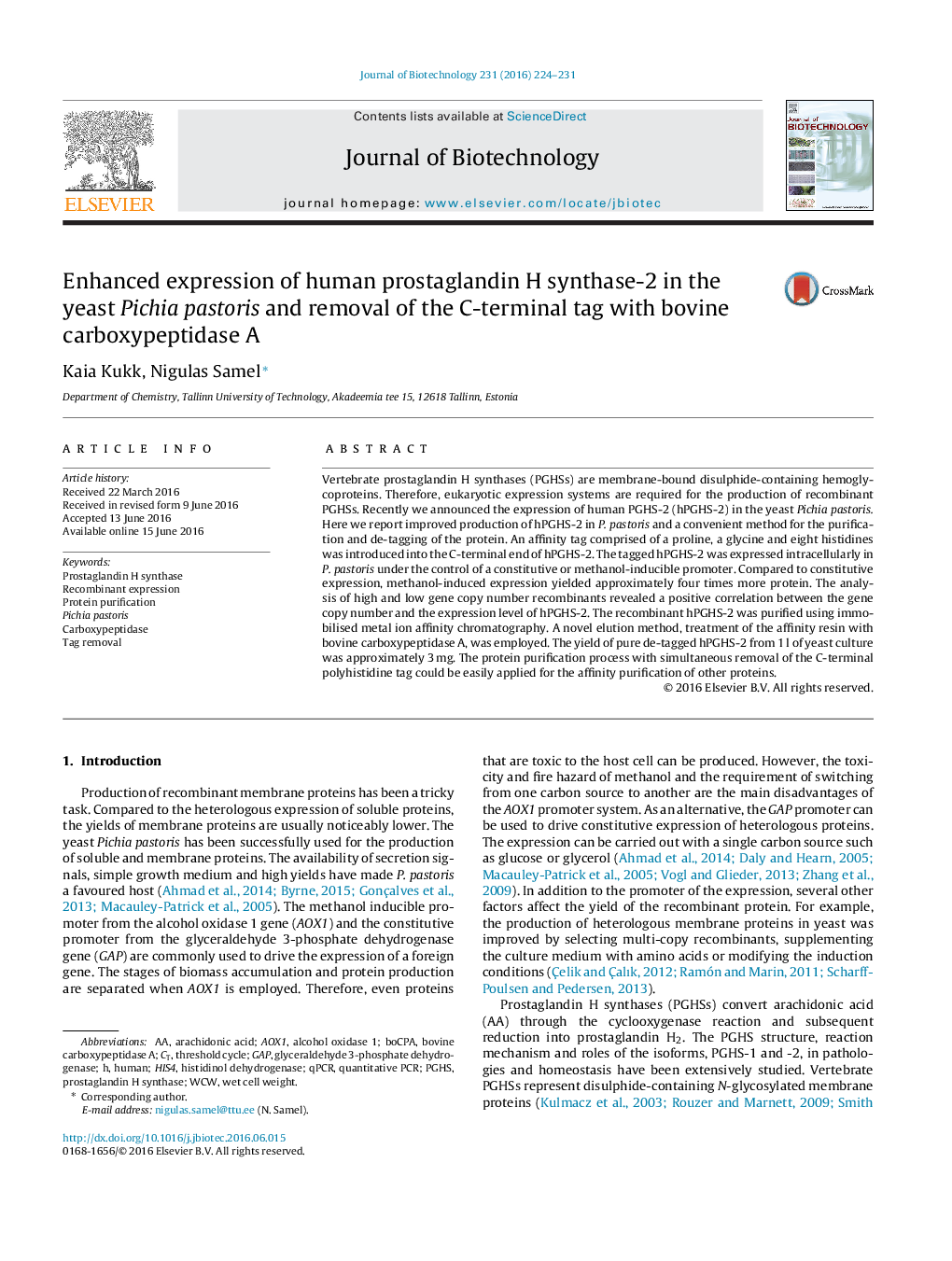| کد مقاله | کد نشریه | سال انتشار | مقاله انگلیسی | نسخه تمام متن |
|---|---|---|---|---|
| 22680 | 43369 | 2016 | 8 صفحه PDF | دانلود رایگان |

• Octa-histidine tagged hPGHS-2 was expressed in the yeast Pichia pastoris.
• Compared to constitutive expression, methanol-induced expression yielded more hPGHS-2.
• Bovine carboxypeptidase A was used to elute hPGHS-2 from the Ni-affinity resin.
• 3 mg of pure de-tagged hPGHS-2 was obtained from 1 l of P. pastoris culture.
Vertebrate prostaglandin H synthases (PGHSs) are membrane-bound disulphide-containing hemoglycoproteins. Therefore, eukaryotic expression systems are required for the production of recombinant PGHSs. Recently we announced the expression of human PGHS-2 (hPGHS-2) in the yeast Pichia pastoris. Here we report improved production of hPGHS-2 in P. pastoris and a convenient method for the purification and de-tagging of the protein. An affinity tag comprised of a proline, a glycine and eight histidines was introduced into the C-terminal end of hPGHS-2. The tagged hPGHS-2 was expressed intracellularly in P. pastoris under the control of a constitutive or methanol-inducible promoter. Compared to constitutive expression, methanol-induced expression yielded approximately four times more protein. The analysis of high and low gene copy number recombinants revealed a positive correlation between the gene copy number and the expression level of hPGHS-2. The recombinant hPGHS-2 was purified using immobilised metal ion affinity chromatography. A novel elution method, treatment of the affinity resin with bovine carboxypeptidase A, was employed. The yield of pure de-tagged hPGHS-2 from 1 l of yeast culture was approximately 3 mg. The protein purification process with simultaneous removal of the C-terminal polyhistidine tag could be easily applied for the affinity purification of other proteins.
Journal: Journal of Biotechnology - Volume 231, 10 August 2016, Pages 224–231